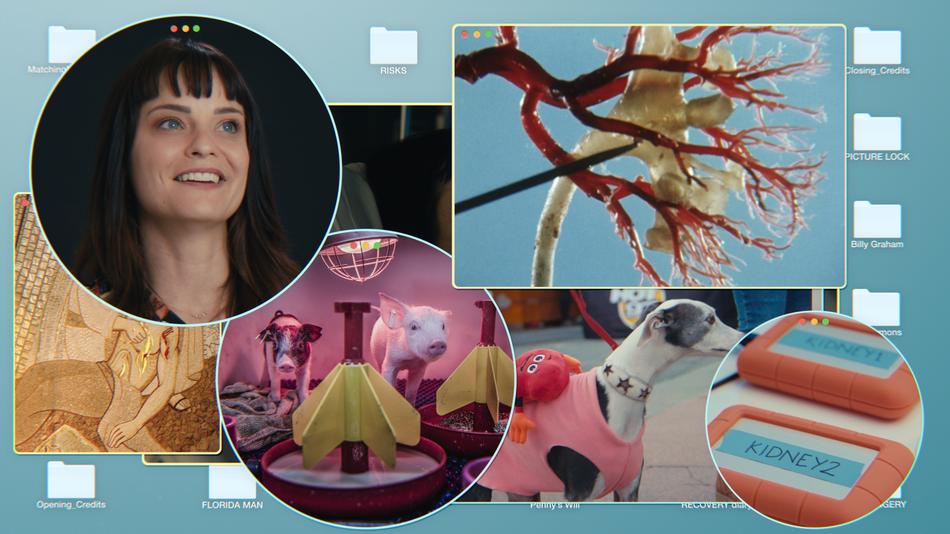Investigating the nature of altruism, director Penny Lane turns the camera on herself in Confessions of a Good Samaritan, showing her process as an organ donor navigating the uncomfortable space of “gifting” a part of your body to a stranger. Single, in her early 40s, and financially secure after a decade of building her career, she decides its time to give back to the universe as a way of saying thank you for life ultimately working out.
For Lane, this is a rare work to proceed in a fairly straightforward manner. Extensive self-interviews frame her donation, which was made before COVID disrupted every industry, and Confessions unpacks the history of donations, including a 1984 decree that outlawed the exchange of money or anything of value for a body part. Though most donations are made to family members in need, online exchanges––similar to a dating website––are an option for those shopping for the most deserving of a kidney.
All of which proves to just be too overwhelming for Lane, who chooses NYU Langone Health for her altruistic donation. We learn the name Langone has a personal significance for Lanen who, far as we know, isn’t related to the hospital system’s namesake, Home Depot co-founder Ken Langone.) Her early experiences don’t quite go as expected, not receiving as warm a welcome as hoped from hospital staff.
What follows is an informative, personal, somewhat repetitive film that might have been more impactful as a short work studying the history and current state of organ transplants while largely remaining focused on Lane’s experience. She wonders if she can she just give her organ to anyone, even someone she doesn’t agree with. One testing example she gives is Nelson Gibson, a “Florida man” who is so obsessed with then-President Trump he fights for his right to bring a life-size cardboard cutout of the Donald to his weekly dialysis treatments.
Lane also briefly unpacks the history of the organ transplant, including the father of the procedure, Alexis Carrel, an experimental biologist who, after becoming a Nobel laureate, implemented a eugenics policy in France. The procedure is fraught with risks––including rejection of an organ transplant––until the FDA approves cyclosporine, an immune system suppressant.
Unlike Lane’s darkly comic doc Nuts!, she avoids diving too deep into the story of Carrel or other experimental biologists and instead focuses her film around a genuine sincerity for doing the right thing if you are able to. Lane is, of course, too smart to pull on all the strings and create a manipulative PSA about organ donation. The film instead is a study in altruism without an uplifting ending where she gets to meet the stranger to whom she gave her kidney.
Perhaps this is where the film falls slightly short: bouncing between inspiring experiences, medical guidance, and Lane’s own experience a few years removed, Confessions of a Good Samaritan never quite settles on a direction. Biting off a little more than it can reasonably process, it’s a story about medical ethics, a personal journey, and a deep dive into the idea of altruism through the eyes of donors. It may also be that Lane, who is quite charismatic in Q&As and interviews, is just not as comfortable on camera as documentarians like Nina Davenport or Nick Broomfield.
Confessions of a Good Samaritan premiered at SXSW 2023.

